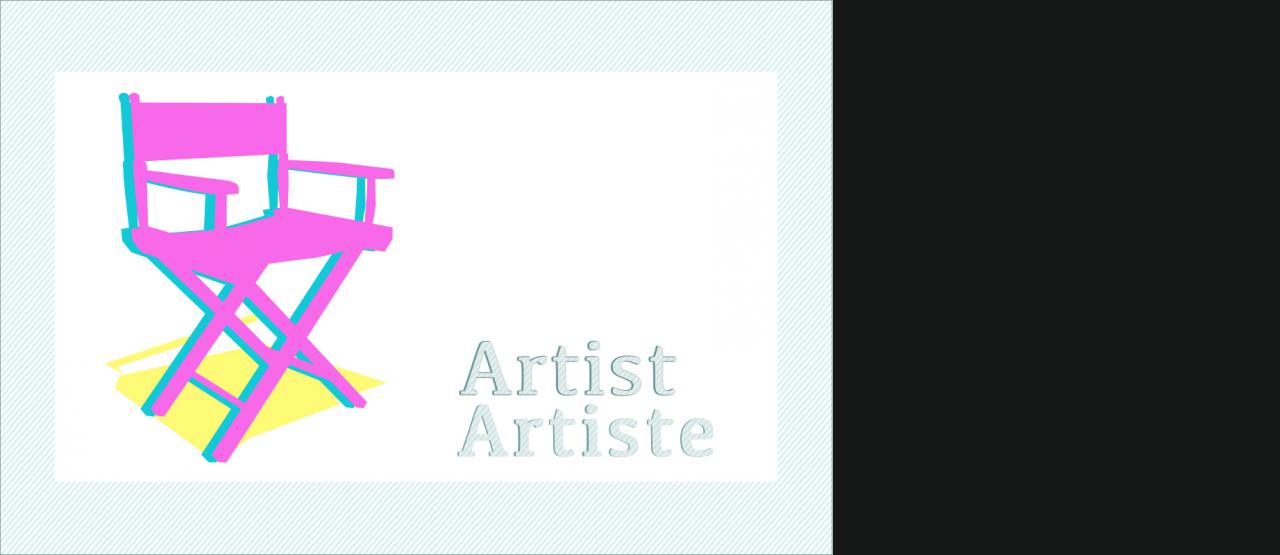Rodrigue Jean

Director, scriptwriter, video maker. Trained in biology, sociology and literature, but with a professional background in dance and choreography, Acadian Rodrigue Jean was the revelation of French-language queer feature film in the late nineties. Founding member of the dance troupe Les Productions de l’Os, Jean lived in London for ten years, and his first video La déroute (1990) was based on his choreography. Subsequent tapes include the prizewinning La mémoire de l’eau (1996, 11), a disturbing narrative of a man who drowns his dying lover and is haunted by his memory, and L’appel/Call Waiting (1998, 16), a gay telephone breakup melodrama inspired by Cocteau.
Jean’s feature film debut was Full Blast (1999, 92), based on the prizewinning Acadian novel L’Ennemi que je connaîs by Martin Pître. A blast of fresh sea air when it hit mainstream theatres and queer festivals 1999, Full Blast is a downbeat art film with a pop feel about five hinterland characters whose lives are going nowhere. Blast was shot in Bathurst NB’s beautiful setting on Chaleur Bay, where the pulp and paper mill is closed and everyone smokes way too much (tobacco and pot). Three down and out buddies, Piston, Charles and Steph reunite and dream of starting up their old band again. Piston’s ex Marie-Lou is a superb singer, the only thing the band has going for it but she’s resisting, because Piston is a dealer, a pothead and a loser who won’t accept responsibility for their daughter. All is presided over by the bar owner, Rose, a wise and tough lady who can’t say no any better than anyone else in this town: she’s played by Louise Portal, whose involvement ensured Jean a generous budget and big names for this first feature (not that the producers didn’t end up balking when they finally saw Jean’s superbly directed, contemplative and sexually transgressive film–until audiences actually liked it!). It turns out the film revolves less around Charles the gay man returning to the setting from which he once escaped, than Steph, the beautiful bisexual who seems to have just a little more resilience and integrity than his pals and who fucks–and is fucked by–almost everyone else in the circle but can’t find what he’s looking for. Charles escapes again, but Steph and everyone else is stuck.
Jean continued in the same skillfully drawn melodrama of regional sexual, existential and social marginality with his next feature Yellowknife (2002, 117). This time it’s a road movie and Jean’s frustrated and lonely characters are anything but stuck in a backwater, miraculously driving from Moncton to Yellowknife with scarcely more than the usual roadkill, robberies, brawls and orgies. A broodingly handsome young man Max rescues his sister Linda from a psychiatric hospital and they set out in their pickup truck, picking up anglophone twin-brother hitchhiker-strippers as well as a blowsy lounge singer (Patsy Gallant, the Quebec disco star in a much-praised comeback) and her driven omni-sexual manager, as well as, eventually, somewhere along the way, a straight and narrow aboriginal cop who bonds with Linda. They make it to Yellowknife, but as the genre requires, encounter much more than expected along the way. Yellowknife is even more of a encyclopedia of sexual marginalities than Full Blast, complete with incest, sexwork, sexual assault, a compulsive masturbation-exhibitionism-voyeurism symbiosis, even a scary kind of conventional heterosexuality with the cop, as well as implied homoerotic self-discoveries by both brother and sister. This seeming lapse into art film pansexual perversity drove a few critics off the deep end, but by and large Yellowknife’s critical reception as a confirmation of Jean’s impressive originality was better than its disappointing box-office results.


